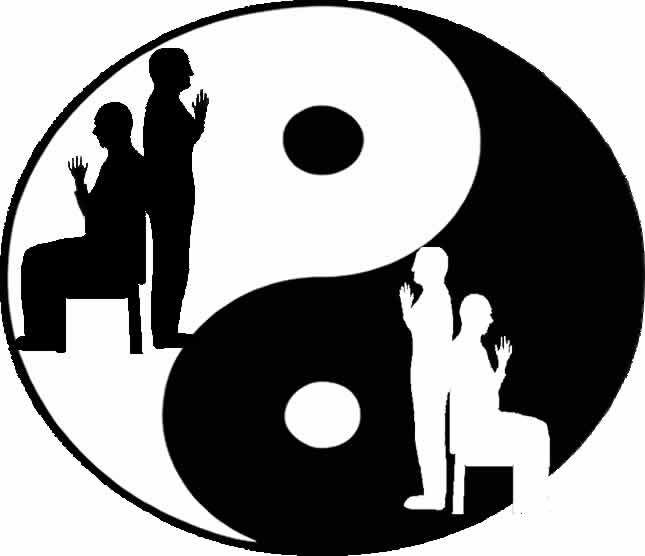Questions & Answers
Rather than provide answers that could be percieved as being biased, the following question and answers are taken from the Live Well section of the NHS website. These have been written in black and to provide "all you need to know about tai chi, including the health benefits, the different styles of tai chi and getting started" http://www.nhs.uk/Livewell/fitness/Pages/taichi.aspx.
I have also provided the responses to the same questions from Tai Chi For Health Institute in blue writting. http://www.taichiforhealthinstitute.org
What is tai chi?
Tai chi, also called tai chi chuan, combines deep breathing and relaxation with slow and gentle movements. Originally developed as a martial art in 13th-century China, tai chi is today practised around the world as a health-promoting exercise.
What are the health benefits of tai chi?
While there's scope for more rigorous studies on tai chi's health benefits, studies have shown that tai chi can help people aged 65 and over to reduce stress, improve balance and general mobility, and increase muscle strength in the legs.
A study published by the Journal of Rheumatology with 72 patients compared a tai chi group to a control group. It found that the tai chi group had 35% less pain, 29% less stiffness, and 29% more ability to perform daily tasks (like climbing stairs). Additionally, balance improved by 30%.
Can tai chi help prevent having falls?
Some research suggests tai chi can reduce the risk of falls among older adults who are at increased risk. However, more research is needed.
The largest tai chi for fall prevention study, in a community setting, was published by the American Journal of American Geriatric Society. The majority of participants were taught the Tai Chi for Arthritis program. The study found that recurring falls were reduced by nearly 70%. It also found that building confidence— a fundamental component of the Tai Chi for Arthritis program—correlates closely to the reduced rate of falling ... positive impact on the participants balance and stability, decreases their falls
Can tai chi help with arthritis?
There is some evidence that tai chi can improve mobility in the ankle, hip and knee in people with rheumatoid arthritis (RH). However, it is still not known if tai chi can reduce pain in people with RH or improve their quality of life.
Medical studies confirm Tai Chi for Arthritis relieves pain, reduces falls and improves quality of life, that is why the Arthritis organisations around the world support the program.
Am I too old for tai chi?
No, tai chi is a low-impact form of exercise, which means it won’t put much pressure on your bones and joints and most people should be able to do it.
Is tai chi suitable for me?
Get advice from your GP before starting tai chi if you have any health concerns or an existing health condition. You may need to take certain precautions if you’re pregnant, have a hernia, back pain or severe osteoporosis.
Don't I need to be fit to do tai chi?
No, tai chi is ideal for inactive older people wanting to raise their activity levels gently and gradually. Also, many of the tai chi movements can even be adapted to people with a disability, including wheelchair users.
Can I injure myself doing tai chi?
Tai chi is essentially a gentle activity unlikely to cause injury if done correctly. The exercises involve lots of flowing, easy movements that don’t stress the joints or muscles.
Can I learn tai chi from a book or DVD?
It’s a good idea to learn the basics of tai chi from an instructor to ensure your style is correct, effective and won't cause injury. You can consider using a book or DVD once you’re familiar with the poses.
If you have any questions that these answers do not give please contact me and I will endeavour to provide you with an answer.


